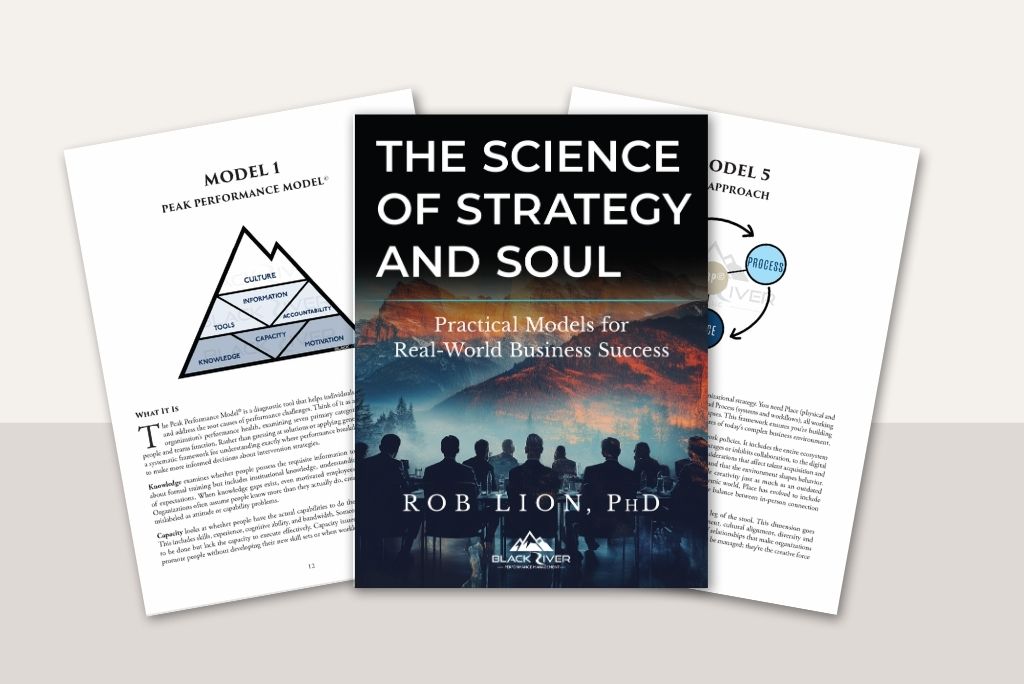The following is an excerpt of the message I sent to my graduate Motivation class this week; I received positive feedback and a request to share it with others. So here you go!
In my Contemporary Theories of Motivation course, students learn about the theoretical underpinnings of what I consider the most salient motivation research available. Also, as we do this, we aim to push back on both limited-scoped motivation concepts that are of minimal value, as well as “junk food” motivation tactics (if you want to hear more about junk food motivation, listen to our Motivation Masterclass Part 1). Instead, we are focusing on what I consider to be the foundational elements of human flourishing.
As with anything, the outputs/outcomes reflect the quality of inputs. I hope that through learning more about the science of motivation, my students and clients can better understand themselves, their behaviors, and their tendencies. However, this is merely a first step in the flourishing process. What follows is about quality inputs – nourishment for our soul.
At the end of this semester, to kick off my sabbatical, I will attend a retreat led by Dr. Dacher Keltner, hosted by Chip Conley’s Modern Elder Academy. I want to share a little about Dr. Keltner’s work because it has tremendous value in cultivating peace for individuals and groups. Dr. Keltner is the founding director of the Greater Good Science Center at Berkeley. The Center provides research-backed information and resources on a variety of topics. In our household, we tend to spend most of our time on the Center’s parenting & family, mind & body, and relationships sections. Additionally, the Keys to Well-Being section features numerous quizzes and activities.
I first learned about this work from The Science of Happiness podcast, as there isn’t a direct line between Keltner’s and my research. However, what I am doing personally and within Black River is leveraging many of Keltner’s and colleagues’ teachings to help enrich personal and professional experiences. After all, our motto is Work Should Fuel the Human Spirit, not Drain It!
In the last year, the podcast has established a spin-off segment called Happiness Break. These feature short (under 10 minutes) activities. These research-backed Happiness Breaks do to the brain what Dr. Andy Galpin’s Exercise Snacks do for the body. Simply put, they change our neuro and physiological states in a very quick timeframe, resulting in pro-psychological and pro-physiological experiences.
Dr. Keltner’s work goes beyond the GGSC. He is a leading researcher on the topic of Awe. What is awe? According to the GGSC, it is “the feeling we get in the presence of something vast that challenges our understanding of the world, like looking up at millions of stars in the night sky or marveling at the birth of a child. When people feel awe, they may use other words to describe the experience, such as wonder, amazement, surprise, or transcendence.” If you want to learn more about Awe, please consider Keltner’s new book, “Awe: The New Science of Everyday Wonder and How It Can Transform Your Life.”
I shared the above information for various reasons. Regarding this class, I see this work as essential in helping “harness” optimal levels of internal motivation. This content is the next step in enhancing well-being – the nutriments to inner growth. The first step is better understanding what motivation is and isn’t, followed by regular doses of high-quality inputs.
Too many people live in the extrinsic motivation space, and because of that, they are constantly experiencing stress because they are looking for validation, recognition, likes, etc. The research consistently demonstrates the limits of these external factors as they relate to well-being and joy; they are harmful forces. I admit when I was younger, that was a part of my struggle that prevented me from finding peace and true joy. Today, I have a lot of peace and joy in my life, and I tie most of it to the evolution of my knowledge base of the science of motivation. What I’ve discovered is a language and frameworks to explain what is happening in my life on a psychological level. This is extremely powerful and empowering. Because of this, I now have the agency to choose how I interact with the world and the different forces I encounter. Furthermore, because of a tremendous amount of work in self-regulation and self-control, I now have the awareness (and tools) to choose how I react to stimuli and triggers (if you are unfamiliar with these concepts, Dr. Roy Baumeister and colleagues have been voracious publishers in this space. If you want something less academic and easier to swallow as a practitioner, you can focus on Emotional Intelligence).
The Greater Good Content provides further frameworks and practices to help manage the noise in my life and become more purposeful and focused in my life’s pursuits. At the risk of being vulnerable, I will admit I am at a crossroads in my professional life. I work to balance two professional lives that are, fortunately, complementary – a professor and a consultant. They both bring me a lot of joy, but I also have some fear and uncertainty over what is ahead for me. Part of the purpose of my sabbatical beginning in January is to revisit my trajectory and refine my path and pursuits for the next five to ten years.



